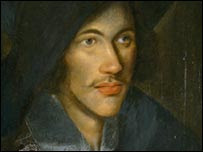Summary
The Jews are packed into cattle cars, there is almost no air to breathe, the heat is unbearable, there is no room to sit, and everyone is hungry and thirsty. Some begin to 'show 'affection' openly on the train as though they were alone, and others pretend not to notice. After days of travel in these inhuman conditions, the train arrives at the Czechoslovakian border, and the Jews realize that they are not simply being relocated. Madame Schächter, a middle-aged woman who is on the train with her ten-year- old son, soon cracks under the oppressive treatment to which the Jews are subjected. On the third night, she begins to scream that she sees a fire in the darkness outside the car.
The train eventually stops, they have reached Auschwitz. This name means nothing to them, and they bribe some locals to get news. With nightfall, Madame Schächter again wakes everyone with her screams, and again she is beaten into silence. The train moves slowly and at midnight passes into an area enclosed by barbed wire. Through the windows, everybody sees the chimneys of vast furnaces. There is an undefined, odor in the air—what they soon discover is the smell of burning human flesh. This concentration camp is Birkenau, the processing center for arrivals at Auschwitz.
Quote:
"Jews, look! Loook at the fire! Look at the flames!"-pg 28
Reaction:
This isn't the first mention from Madame Schächter of fire, no, this is the only time it makes sense. Before they were in the middle of no where and no fires in sight. BUt in the Cattle car the the Jews faced a kind of fire we have no idea of, the extreme heat of 80 bodies shoved in a space meant for nearly half that, and with a very minimum amount of water the Jews must have felt like they were burning. However this madness of Madame Schächter seems to be a bad omen foreshadowing the cremotoria.
Link ABOUT RAILCARS OF THE HOLOCAUST, from the HOlocaust Documentation and EDucation Center


Good job, Kirk. I liked your insight when you said Mrs. Schachter's quote is foreshadowing to the fires of the furnace. I also checked out the railcar link, and found this quote interesting: "The rail car is a powerful visual tool in the Center's mission to demonstrate the loss of dignity and freedom during the reign of the Nazi regime." It speaks of the railcar as a sign of opression. Again, good job as usual.
ReplyDeleteThis was a very well done blog Kirk. The quote is very appropriate for the chapter and the link is awesome. It really helps show how bad the conditions were on the train.
ReplyDeleteWell done Kirk. You summarized the chapter well and gave us a look at what the trains looked like. The quote you picked also gave an insight into the minds of the guards.
ReplyDeleteKirk, great post! you used great words to describe the way the rain conditions were. Also I agree with Mike about the quote and how it fits the chapter to well. Also the picture goes well to give us an image of the train they were on. Great Job!
ReplyDelete